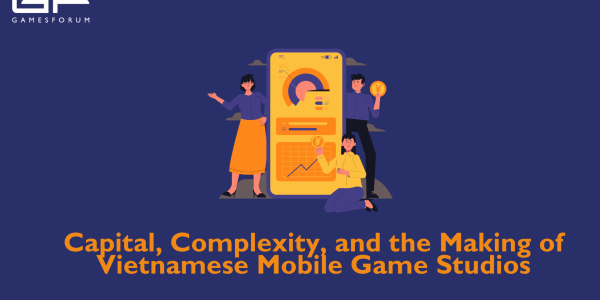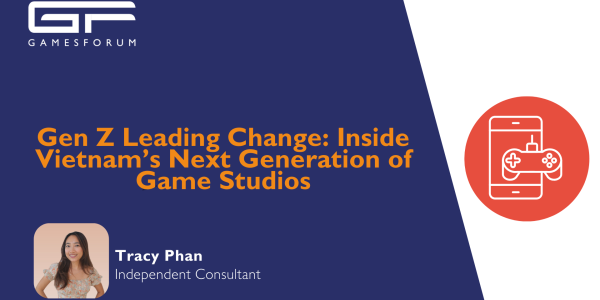Q&A: Holly Nielsen, Journalist and Historian at The Guardian and the Telegraph

If there’s one thing that the Gamesforum team has, it’s a surprisingly large number of history degrees. That’s why we couldn’t help but have our eyes caught last year by the intriguing Discovery Tour mode within Assassin’s Creed Origins.
The cross platform open world stealth game allowed players to explore Ancient Egypt in peace, using the opportunity to learn more about the history of the period while also drinking in the setting.
But how can developers with an interest in using history within their games do so effectively? How can companies work with academic historians and other experts to imbue their worlds or mechanics with a sense of historical authenticity? And is there anything that academic historians can learn from interacting with video games?
Holly Nielsen is a journalist and historian. She’s written about video games for publications such as The Guardian and the Telegraph. She is currently doing a postgraduate degree in history at the University of Cambridge about the history of British board games and has guest lectured on the use of history in video games.
We caught up with her to see if we could find the answers to these questions and more.
Gamesforum: Why do so many developers use historical settings for their video games?
Holly Nielsen: I think it gives audiences a cultural cue that a lot of people will know, relate to and understand quickly. People will know it through memory and society.
If you set a game in World War II, people will mostly know what’s going on. There’s a readiness and availability of knowledge of big historical topics that is appealing to developers.
Gamesforum: Does the requirement for people to understand the historical setting limit the options that developers can go for? Or are they able to break free of those constraints?
Holly Nielsen: Not at all. I think games do and definitely should look at bits of history people don’t know as well. The first Assassin’s Creed was based on the crusades, which is something people will know but not necessarily in a lot of depth. So there’s an appetite for history that developers can really tap into.
Gamesforum: How do developers actively set a game within a particular time period or historical era? What do they do to make it convincing for players?
Holly Nielsen: Every developer is different and every type of game is different. There’s a huge difference between a game like Civilisation or Age of Empires compared to a game like a first person shooter or a role playing game.
If you’re looking at strategy games, it’ll often be about procedures, big historical movements and big society changing things. An RPG will often be about a personal relationship or smaller decisions and that’ll impact on a personal side.
So it’s different for every developer and it’ll differ vastly depending on what they’re looking at. The key is really engaging with historical research and looking at where historians are looking for research, such as looking at primary sources and working with academics.
We’re seeing a lot more of this now. Games are actively utilising academic historians – which is brilliant – and there’s a lot that games can bring to history and vice versa.
Gamesforum: Before we come back to that, I was wondering which games you think have been best at representing the historical setting they are in?
Holly Nielsen: That’s a really good question. This is a difficult question because so many different games do things in so many different ways.
I think Assassin’s Creed Origins Discovery tour mode, where you switch off the violence, is really cool and such a great step. There’s all this amazing research and it’s a great way of showing it and making it accessible to people.
Valiant Hearts I think is a really interesting case. I know a lot of journalists when it came out found its cartoon portrayal of the First World War, and its use of tropes and stereotypes, really jarring for the subject matter.
But I know a lot of historians who really admired the game for what it did and what it tried to do, the way it used the dissonance of play and these cartoonish elements that were within popular culture at the time and using it to jar with the serious topics. Although I think it isn’t a shining beacon, it’s really interesting for what we’re trying to do.
I also think Red Dead Redemption is interesting. It has a lot of issues and it should be critiqued. But Rockstar’s work creating the feeling of a place and creating an environment is really impressive.
Gamesforum: You mentioned that there’s this discussion between academics and developers about how to use history in video games, but you mentioned that it can work the other way as well. What are the things that academics are looking from video games to help them represent and understand history?
Holly Nielsen: I think they’re looking for a real engagement with the society and culture of the time period. A game allows you to have a certain tactility with historical objects and buildings.
You can’t climb up Notre Dame in real life in the way you can in Assassin’s Creed Unity and I think more and more games are being used to provide that heritage factor. Things like AR have been utilised to help with this idea of historical spatial awareness. It’s very difficult to get that across the page.
I also think games are good with explaining the whys of history, about showing cause and effect. It allows you to take an idea like agency and explore it in a non-linear narrative.
This could have huge implications for something like legal history. For example, a game that has agency in a narrative could be a better way to explain the ins and outs of legal history instead of a straight paragraph.
Gamesforum: Game developers may look to provide a historical setting in their game, but they also still have a responsibility to provide fun to players. How should developers approach the challenge of being historically accurate while offering something entertaining that could veer away from the history at hand?
Holly Nielsen: Historical accuracy is a really difficult term. Even historians writing a history could be deemed historically inaccurate because you know they can’t include everything they know or all the details of it. Things can be not entirely historically accurate but still enable a discussion or help people understand certain historical aspects.
So one thing I’d be wary of is claiming historical accuracy when actually that’s an almost impossible thing to do. That’s something that should raise a couple of red flags if something claims to be historically accurate. You need to look at where their histories are coming from, which histories they’re reading. The idea that something is historically accurate is problematic.
But games are commercial things that you have to sell. You can balance that and have both sides. Historical games like Assassin’s Creed or Age of Empires do well are acting as a starting point for historical interest. So someone may see something in a game and the game itself can’t or doesn’t go into detail explaining it, so they look it up or go elsewhere for it. So they’re really important for that.
Gamesforum: As a final question, what advice would you give to developers looking to work with historians to make sure their game – if its set in an historical setting – really capture the feel of the period?
If you’re going to bring in academic historians, do it from the very beginning of the creative process. Historical research, anything you process or don’t process, is creative in of itself. Don’t use a historian like a reference book because you can utilise them so much more. Don’t just be “what colour is this” or “where would you find this” because they can help you capture a feeling or sense of authenticity by getting them in at the beginning.
I think also finding joy in the research is important. Let it take you wherever it’ll take you. You might end up researching stuff that doesn’t end it into the game, but it’ll help flavour it in its own way. So I think it’s important to let it take you to unexpected places and see where you end up.
Topics such as the use of history in video games and the preservation of video game history will appear on the agenda of Gamesforum Seattle on the 23rd/24th October.
Purchase your passes for the event here.











